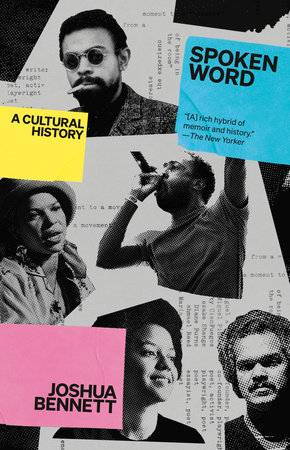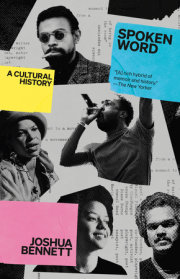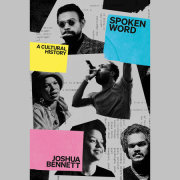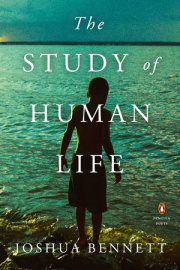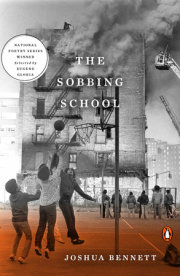Book 1:
The Nuyoricans
I came from a family where culture prevailed. My folks gave me a love of culture. So there is nothing surprising about Shakespeare being in my life. It would be surprising if he weren’t. I work for him and he works for me. He wanted to have a place to tell the story of England; so I wanted to have a place in which to tell the story of the Lower East Side.
—Miguel Algarín
Well, I guess I started stealing when I was eight. Stealing bread for my baby sister and brother. And other times you walk into the supermarket and just eat the food right out of the aisles, and not even pay. We’d walk right outside, you know? Now when you think about Latin writers, you probably think about Señor Márquez, Neruda, Cortázar—the magic realism. Not here, not this. There are no floating butterflies around my head when I walk down Avenue B, you know. This is street reality. This is where we shout it out. Shout it out.
—Miguel Piñero
On a Friday night in November of 2006, my senior year in high school, I put on a royal-blue T-shirt emblazoned with Bob Marley’s face, and a pair of red-and-white Nikes I’d purchased with my Foot Locker employee discount. I boarded the 1 train from 242nd Street after taking the BX9 bus from my childhood home, heading south for Manhattan, to a placed called the Nuyorican Poets Cafe. Earlier that fall, I qualified for my first city-wide youth poetry slam, which was to be held at the famous East Village bar and global center for spoken word: the most famous poetry slam venue in the world. The only other time I had been to the East Village was to purchase my first album, Juelz Santana’s From Me to U, from a record shop not too far from the Cafe. I would keep the record as contraband that year—no hip-hop allowed in the house—letting its sharp cadences and outlandish tales of uptown bravado color the raps I recited to myself in the still moments between studying for English class and writing for the stage, which by November had already become my second job, alongside the gig at Foot Locker. The walk from the D train to the Cafe was an education. All the elements of my surroundings were turned up to ten: each radiant color and irrepressible sound. Bass blasting from the windows of cars, Dollar pizza shops packed from wall to wall, rows of sunglasses stacked higher than any passerby. When you got to the part of Avenue C where the Cafe lives, you knew it immediately by the line that stretches all the way down the block (whether we’re talking Wednesday or Friday, it made no difference, I would soon learn), the large black awning and booth that leads to the door, and the mural on the wall depicting the famed Nuyorican poet Pedro Pietri. Pietri was sketched in blue and black and surrounded by red bricks on all sides. The mural also featured five faceless figures in hats and trench coats, as if a collective composed entirely of detectives who also happened to be ghosts.
It took about twenty minutes to get to the front of the line, at which point I paid the entrance fee and stepped inside the venue. The first thing I saw was the blast of Technicolor: red and blue and bright yellow where the stage lights hit the back of the room. All the chairs in the venue were aimed toward the back of the space, where there was a bright vermilion rug onstage, and a wireless microphone in a metal stand on top of that. There were paintings all over the walls, and a DJ in the back spinning records in and out of one another at warp speed. The room was bristling, alive.
On the night of that first slam, my big sister, Latoya, had just returned home from her senior year of college. She came all the way down from Yonkers to the Lower East Side to see me perform. The host that night was a poet and emcee named Jive Poetic, and the place was packed. As is custom, the DJ played Bell Biv DeVoe’s timeless hit “Poison” right after the judges were chosen and right before the sacrificial poet touched the stage. Thankfully, I didn’t draw the first slot during this particular slam. Generally speaking, no one wants to go first. When that happens, you have to set the tone for the night, and have no idea what kind of work your competitors will bring to the table. Whether you opt for a funny poem or something a bit more politically charged becomes a gut decision, instead of a strategic choice based on audience reaction and the poet who performs right before you. It’s a tough spot to be in.
Ten teenagers signed up for that night’s competition and discerning an early favorite would have been difficult amid such a large field. I did my best to stand out. As a friend’s former mentor used to say, “Your poem starts before you touch the stage”—by which she meant that the process of communicating who you are, what you are about, begins the moment the audience first sees you, before you have even opened your mouth. It may have been my first time performing at the Nuyorican, but I was familiar with the lore. I knew that when the poetry resonated, it got wild in there: people yelling, banging on tables, laughing so loudly that you could barely hear the poet. Likewise, you could just as easily tell when the crowd wasn’t into it, and that was my worst fear—not rejection so much as indifference. The point of slam is not simply to be heard. You want to be engaged, encountered, unforgettable.
The poem I performed that night was the first one I had ever written for the stage: “The Talented Tenth.” As its title suggests, it was a meditation on W. E. B. Du Bois’s theory of racial uplift. The ideas that would eventually become “Talented Tenth” were shaped during the two-hour commute from my parents’ house to my private high school in Rye, and then back again each day. For all four years of high school, I would wake up at five a.m. and speed down the block with my laptop and books in my backpack while just about everyone else in the neighborhood, my family included, was still asleep. On those walks, I would think at length about what it meant to have been selected for this opportunity. I knew that my friends, family, and classmates from childhood all would have benefited greatly from the sort of educational resources I now had access to. Until I discovered slam, I was never able to put that feeling into words, and wrestle with what it meant to me, and for how I should live my life. Though I was exposed to poetry at home—Toya kept a copy of Maya Angelou’s “Phenomenal Woman” taped to her bedroom door—the spoken word poets who entered my life my senior year, once I started going to slams, had an energy to their work that felt altogether new. For one thing, the vast majority of the poets I met around that time were my age. They used profanity unabashedly (to my mother’s chagrin), they talked about teenage angst, structural inequality, and global revolution in evocative ways, often addressing all these subjects in the span of a single poem. I knew from the very beginning that I had found my people—and my calling.
Jive Poetic called out my name, and I walked up to the microphone to mild applause and the discernible voice of my sister yelling “Let’s go, Josh!” from the front row. I took a moment to survey the crowd, closed my eyes, and tried to reimagine the scenes that brought me to this moment. The venue was packed to the brim that night. The stage lights shone so brightly I could barely see beyond the front row. The poem began:
I am a member of the Talented Tenth
W. E. B. Du Bois’s theory in the flesh
The cream of the crop
the best of the best
or at least that’s what I’m told
by my standardized tests . . .
The poem clocked in at a little under three minutes, in accordance with the slam rules I had memorized well in advance. It reckoned with my experience of double-consciousness not only as someone who is both black and American—what Du Bois describes as “two warring ideals in one dark body”—but as a child of working people who attended an elite, predominately white high school. It then moved to a much larger narrative about racial discrimination and injustice, detailing the history of segregation, lynching, and structural poverty that I had learned from my parents over the years. Like so many spoken-word performances, “Talented Tenth” was a combination of autobiography and social critique. It was my attempt to hold a mirror up to myself and my surroundings at the same time, to invite everyone within earshot to hear my story and to see a piece of themselves in it. The performance went over well, and I was awarded a near-perfect score by the judges. Ultimately, I was selected as one of the winners of that night’s slam who would go on to compete in the semifinal phase of the citywide youth poetry slam competition. After the bout, Latoya took me out to Wendy’s to celebrate. It was truly a banner night.
Sitting at the bar that evening was a man named Miguel Algarín. I had never met him, or even heard of him, before that night’s slam. When I returned to the scene in earnest during the summers after my freshman, sophomore, and junior years of college, Miguel remembered me, and would say so. He never offered advice, or feedback on individual poems, or anything like that. The point, I think, was simply to clarify that the work had resonated with him. It would take me almost a decade of study after those first encounters with Algarín to begin to understand his contribution to the art form I was every day growing to love and setting out to transform in my own way. Without my knowing it, his dreams had been the foundation for my own.
Miguel passed away on November 30, 2020, at the age of seventy-nine. The Nuyorican Poets Cafe was his creation, and he handed it down, along with other elders who were his friends and colleagues, many of them literary giants who became ancestors too soon, and some who walk among us even still. My performance in that room, standing in the building their poems helped to create from the ground up, was one of my points of origin as a poet. And not only for me, but for hundreds of writers over the past fifty years who have come through the doors of the Nuyorican—whether in its earliest form, in Miguel’s living room, or at the Sunshine Tavern, or in the Alphabet City venue where it currently resides—in search of a haven, or fame, or a tradition they could call their own. A place you can stumble into and get lost for hours in the confessions of strangers. An encounter with a living history you’ll never forget.
The Living Room
The voices you hear are coming from the first floor of a Lower East Side apartment building, the color of sandstone, on Sixth Street. The calendar above the clock reads May 1973. If you look through the window to the outside world, you can barely make out bags of trash and a pair of trees just across the street, their finer details blurred at this point in the evening. But you can still see the cavalcade of everyday people on the street, carrying their bags from the local bodegas and family-owned pizzerias that feed the block. Back inside, the place is packed. It is usually filled to capacity even on weekday nights, when the writers begin arriving in the early evening and stay until well after night has cast its long black cloak over the proceedings. The twenty or so regulars sit on the couch, on the floor, and on the extra one or two chairs that are always there, unfolded in expectation of the evening’s labor. Those gathered—luminaries like Ntozake Shange, Lucky CienFuegos, Sandra Maria Esteves—read, share lines, and try out new material. They edit one another in real time. They bring their full selves to the process of building this new work in ensemble.
The apartment belongs to a Rutgers professor of English and Puerto Rican studies named Miguel Algarín. He is thirty-two years old. Already, he is a renaissance man like few others. Raised in Santurce, Puerto Rico, until the age of nine, Algarín came to New York City with his family on July 13, 1951, and remained there for his entire life. They initially went to live with his aunt, Carmen Ana Figueras—a singer, entrepreneur, and published poet—on 121st Street and Pleasant Avenue. His mother, Maria Socorro Algarín, was also a writer, and a young Miguel was seen to have inherited his literary gifts from her. She would eventually publish a collection of poems, Lluvias de otoño (which translates to English as Autumn Showers), after his first book was published.
Young Algarín was a voracious reader, and he acted in school plays. An academically gifted student from an early age, he would go on to study at the University of Wisconsin–Madison, at Penn State, and finally at Rutgers University, where he earned a PhD in comparative literature. For his poetry and prose, Algarín would eventually earn an Obie, a Bessie, and three American Book Awards. His unique combination of academic training and upbringing made him an ideal leader for the original, core group of Nuyorican Poets. He had the access, resources, and expertise needed to bridge the diverse community he had grown up in and the literary world that had ignored it for so long. In opening his apartment to the public, and eventually putting up his own money to open the Nuyorican, Algarín provided a model of literary citizenship that is truly rare. Though it would have been much easier, perhaps, to simply serve as a liaison between his homegrown literary community and the ivory tower, he chose instead to blur that distinction altogether; to create a new, alternative space where historically marginalized voices could flourish on their own terms once they arrived in Loisaida. Many of the people walking by outside, of course, would describe this part of Manhattan with less sonorous, more common monikers: the Lower East Side, Alphabet City, Greenwich Village, or simply Downtown. The list of names was as varied as the vibrant colors of flags you would see in the windowsills of Loisaida back then.
Copyright © 2023 by Joshua Bennett. All rights reserved. No part of this excerpt may be reproduced or reprinted without permission in writing from the publisher.

